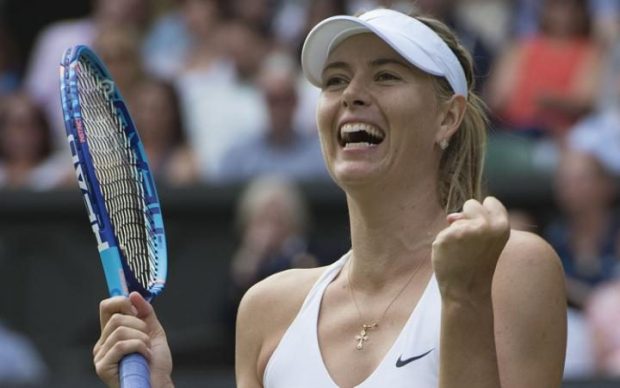Sharapova’s doping ban reduced to 15 months instead of 2 years

Maria Sharapova’s two-year doping ban has been reduced to 15 months following her appeal to the Court of Arbitration for Sport.
The five-time Grand Slam winner, 29, was initially banned by the International Tennis Federation for two years after testing positive for meldonium at the 2016 Australian Open.
The Russian will be able to return to the tennis court on 26 April, 2017.
“I am counting the days until I can return,” she said.
“In so many ways, I feel like something I love was taken away from me and it will feel really good to have it back. Tennis is my passion and I have missed it.”
Meldonium, a heart disease drug also known as mildronate, became a banned substance on 1 January 2016.
Sharapova said she had been taking the drug since 2006 for health problems and had “not tried to use a performance-enhancing substance”.
She said she was unaware the drug had been added to the World Anti-Doping Agency’s (Wada) banned list and could not “accept” the “unfairly harsh” ban.
The Cas panel said it found Sharapova’s case “was not about an athlete who cheated”, adding she was not an “intentional doper”.
However, it said Sharapova was at fault for not giving her agent “adequate instructions” about Wada’s prohibited list.
The tribunal ruling said Sharapova tested positive for meldonium after her Australian Open quarter-final defeat by Serena Williams on 26 January and in an out-of-competition test on 2 February.
Cas treated both results as a single anti-doping violation.
Sharapova won the Wimbledon singles title as a 17-year-old in 2004, going on to win the Australian, French and US Opens to complete a career Grand Slam.
However, she has not played professional tennis since losing to 22-time Grand Slam champion Williams.
“I’ve gone from one of the toughest days of my career last March when I learned about my suspension to now, one of my happiest days,” she said.
“I have taken responsibility from the very beginning for not knowing that the over-the-counter supplement I had been taking for the last 10 years was no longer allowed.
“But I also learned how much better other federations were at notifying their athletes of the rule change, especially in Eastern Europe where mildronate is commonly taken by millions of people.
“Now that this process is over, I hope the ITF and other relevant tennis anti-doping authorities will study what these other federations did, so that no other tennis player will have to go through what I went through.”
How to submit an Op-Ed: Libyan Express accepts opinion articles on a wide range of topics. Submissions may be sent to oped@libyanexpress.com. Please include ‘Op-Ed’ in the subject line.
- Dbeibah backs elections, rejects military rule in Libya - November 23, 2024
- Spanish consumer watchdog levies heavy fines on airlines over unfair fees - November 23, 2024
- Turkish parliament committee backs military agreement with Libya - November 23, 2024


